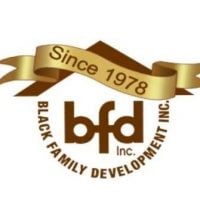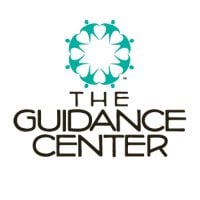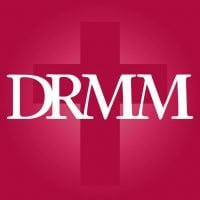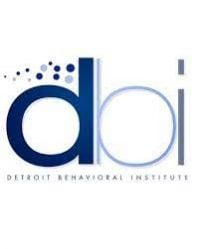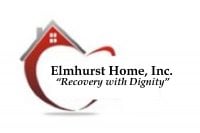New Center Mental Health Services - Family Place
Drug Rehab Center in Detroit, Michigan
New Center Mental Health Services - Family Place is a mental health center in Detroit that provides comprehensive and affordable services for individuals suffering from addiction and substance abuse, with a trauma-informed and culturally-sensitive approach, and specialized services for pregnant and parenting women, outpatient detox services, and community-based integrated treatment.
About New Center Mental Health Services - Family Place in Michigan
New Center Mental Health Services - Family Place is a mental health center located in Detroit, Michigan, dedicated to providing outstanding, comprehensive, and affordable services to individuals suffering from addiction and substance abuse. Established in 1992 in response to the increasing number of substance abuse cases in the Detroit area, the center aims to help its clients work towards healthier lives and improved well-being. This is done through a trauma-informed and culturally-sensitive approach that ensures clients feel supported in their journey of recovery.
At New Center Mental Health Services - Family Place, clients can access a variety of services designed to help treat addiction and substance abuse, such as individual and group counseling, medication management, and case management. Additionally, the center offers community-based integrated treatment for individuals who require dual diagnosis care for their mental health challenges and addiction. They also provide specialized services for pregnant and parenting women, as well as outpatient detox services.
New Center Mental Health Services - Family Place is a CARF-accredited facility and is licensed to provide addiction and mental health treatment services in the State of Michigan. The center has consistently won awards from the Michigan Association of Alcoholism and Drug Abuse Counselors (MAADAC) for their outstanding service and commitment to providing access to quality care for substance abuse and addiction. They also offer a sliding-fee scale to clients in need, ensuring that everyone has access to the help they need.
Genders
Ages
Modality
Additional
Accreditations

JCAHO
Conditions and Issues Treated
A “dual diagnosis” is when the individual has two medical issues at the same time. The top co-occurring mental disorders with addiction are depression, anxiety, ADHD, bi-polar disorder. Addiction is also considered a mental illness that is not a choice but rather a medical condition. Addiction can be caused by any number of underlying issues.
Dual diagnosis is provided by New Center Mental Health Services - Family Place to treat addictive tendencies as well as any untreated mental illnesses. This ensures successful long term health and recovery for patients after treatment has been completed.
Dual diagnosis is provided by New Center Mental Health Services - Family Place to treat addictive tendencies as well as any untreated mental illnesses for people in Michigan. This ensures successful long term health and recovery for patients after treatment has been completed.Levels of Care Offered
This center offers a variety of custom treatment tailored to individual recovery. Currently available are Dual-Diagnosis, Intensive Outpatient, Outpatient, with additional therapies available as listed below.
Outpatient addiction treatment is beneficial for people who are able to function well in their day-to-day lives. It is recommended for people who are not yet ready to end their relationships with friends or family members who might be encouraging drug and alcohol use.
Intensive outpatient treatment is beneficial for:
- People who are able to attend treatment more than 3 times per week.
- People who do not meet the criteria for inpatient treatment.
- People who are able to contribute to their own recovery outside of the treatment center.
- People who are motivated towards recovery.
- People who are able to overcome addiction on their own without the need for higher levels of care.
Outpatient programs at New Center Mental Health Services - Family Place, the Detroit resident can live with their family while continuing with their job or studies. Treatment includes educating the patient on drug abuse, medications, and counseling sessions at the individual or group level. Outpatient treatment plans cover diagnosis, detoxification, management, and counseling. They are a popular option for those who have graduated from inpatient facilities.
Therapies & Programs
Individual therapy is a form of counseling where you meet with a trained professional one-on-one. Meeting with a therapist in this setting allows for a personal and trusting relationship to be built. This allows the patient to open up about sensitive or private issues they may not feel comfortable discussing in a group. Individual therapy helps identify the root causes of your addiction, which can help prevent relapse.
Couples therapy for drug addiction is a unique form of therapy that allows family members to work through the emotional issues of their loved one’s addiction together. Family members can support each other while learning how to cope with the addiction and encourage healthy changes. The two will work with a therapist to learn how the addiction affects themselves and the relationship.
Family therapy is often done alongside drug treatment to help addicts stay sober. The goal of family therapy for drug addiction is to create an environment where communication can happen without judgment, hostility, or blame. The therapist will sit with the family so they can learn how to communicate differently and provide new tools for dealing with emotions so that people don’t want to drink or do drugs. It’s important for families to focus on relapse prevention plans during treatment so that if the addict feels like they want to use again, they’ll know what steps they need to take together to prevent it from happening again in the future.
Group therapy sessions are another common addiction recovery service. These group sessions typically involve six to 12 addicts who meet regularly with a trained professional for support and guidance.
During these sessions, the group shares their experiences with one another and provides feedback that can help each member avoid relapse or overcome specific obstacles they are facing in their recovery process. With this type of support and guidance, addicts can feel like they are part of a community that understands their struggles and will help them get through the hard times.
Many people struggling with drug addiction have experienced some form of trauma in their lives. It is crucial that these individuals seek out professional help; otherwise, their drug abuse and addiction will likely continue.
Therapists and counselors at drug treatment centers employ several treatment programs to help people struggling with drug addiction, including trauma therapy. Trauma therapy helps people dealing with addiction by allowing them to confront the traumas of their past and move past them.
It is important to note that trauma therapy should not be confused with PTSD (post-traumatic stress disorder). Rather, it is used to treat the effects of trauma, which are often at the root of addiction.
Cognitive Behavioral Therapy (CBT) focuses on the underlying thoughts and behaviors that caused the problem of addiction in the first place and may cause a relapse. Negative feelings are common in drug abuse disorders, but they can lead to co-occurring disorders if not recognized. CBT involves strategies that help to change the behavior pattern by restructuring negative thoughts into positive ones. It helps to remove these feelings, and it provides long-term benefits. Also, CBT promotes self-awareness and self-control. It can be administered as a monotherapy or as part of combination therapy.
CBT can improve the patient’s mood, reduce drug cravings and boost success rates on treatment plans. Regular practice can help individuals handle negative attitudes, thoughts, and feelings without turning to drugs or alcohol. The core belief of Cognitive Behavioral Therapy (CBT) is that one’s moods, behaviors, and actions are all connected. Individuals can improve their quality of life using CBT. It helps addicts understand the patterns of thought and feelings that cause them to use drugs or alcohol and develop a healthy response.
It’s not as simple as quitting drinking or using drugs and expecting the hard part to be over. Many addicts in recovery have discovered that they need to improve skills such as time management, organization, communication, socialization, and self-esteem. Learning certain life skills can help those who are struggling with addiction.
Payment Options Accepted
For specific insurance or payment methods please contact us.
Is your insurance accepted?
Ask an expert, call (888) 674-0062
New Center Mental Health Services Associated Centers
Discover treatment facilities under the same provider.
- New Center Mental Health Services - North Park in Detroit, MI
- New Center Mental Health Services - Phoenix Friendship House in Highland Park, MI
Learn More About New Center Mental Health Services Centers
Additional Details
Specifics, location, and helpful extra information.
Detroit, Michigan 48202 Phone Number(313) 664-0700 Meta DetailsUpdated November 25, 2023
Staff Verified
New Center Mental Health Services - Family Place Patient Reviews
There are no reviews yet. Be the first one to write one.
Detroit, Michigan Addiction Information
Michigan has the second-highest rate of drug and alcohol abuse in the nation. Heroin is linked to more than 50% of the state's hepatitis C cases. Marijuana is the drug most often associated with crimes in Michigan, followed by methamphetamines. Opioids alone are responsible for almost 20% of all drug overdose deaths in Michigan.
Over 1,000 drug-related overdose deaths occurred in Detroit, Michigan, in 2017 alone. Opioids (42%) and benzodiazepines (22%) are the most common drugs involved in overdose deaths. Drug overdoses killed more people in 2016 than homicides. In Detroit, Michigan, there are a variety of drug rehab centers to choose from. The most important thing is to find a facility that will best meet the needs of the individual.
Treatment in Nearby Cities
- Gaylord, MI (199.7 mi.)
- Benzonia, MI (216.7 mi.)
- Grand Blanc, MI (47.1 mi.)
- Mio, MI (165.7 mi.)
- Capac, MI (44.4 mi.)
Centers near New Center Mental Health Services - Family Place
The facility name, logo and brand are the property and registered trademarks of New Center Mental Health Services - Family Place, and are being used for identification and informational purposes only. Use of these names, logos and brands shall not imply endorsement. RehabNow.org is not affiliated with or sponsored by New Center Mental Health Services - Family Place.


